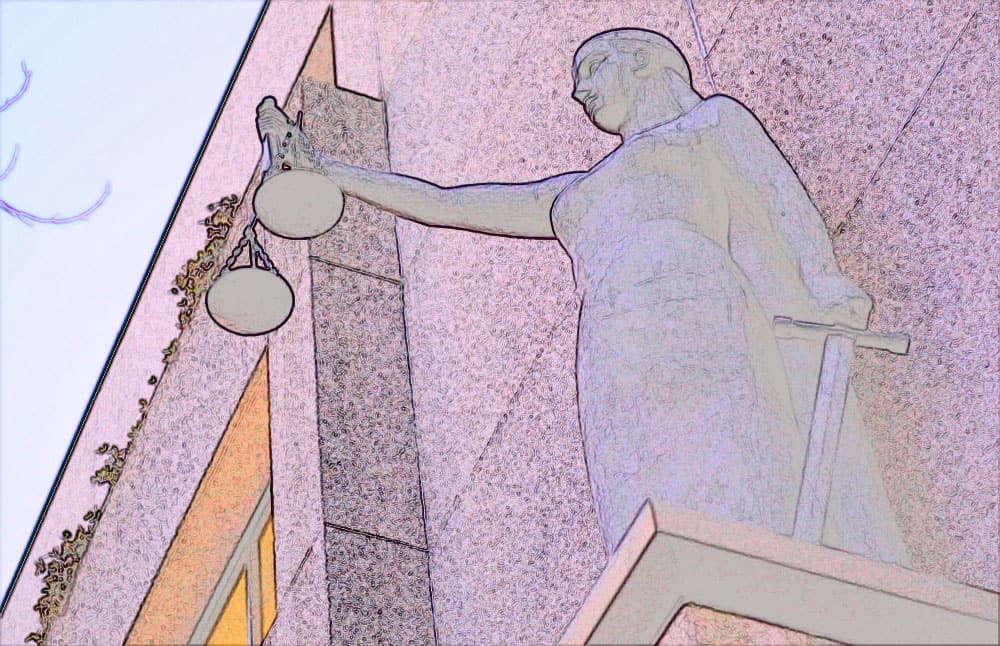Dear Lady Chief Justice,
We write on behalf of the Courts and Tribunals Observers’ Network, a UK-based initiative focused on how the public can be supported to observe courts and access court information in digital and physical environments, to express our concerns about a guidance document (“the Guide”) entitled “How can you attend or access courts or tribunals?” which was published by HM Courts and Tribunals Service (HMCTS) on 29 December 2023.
This Guide seeks to help members of the public understand their rights when attending court or tribunal hearings and provides advice on accessing information about cases. Although not announced as such, the Guide appears to be the “charter summarising the existing rules that facilitate public access to court and tribunal hearings and information” which was promised by the Ministry of Justice (MOJ) in its response to the Justice Committee’s report on “Open Justice: Court Reporting in the Digital Age”.
In response to a Freedom of Information Act (FOIA) request submitted by one of our members, the MOJ explained that the Guide was compiled by the HMCTS Communications Team as a summary of “existing policy, legislation, guidance and rules created by other parts of the justice system, including jurisdictional Procedural Rules committees”. In an email to HMCTS staff, the Guide was described as “uncontentious” as it “does not create new or different rights and responsibilities”.
In our view, however, the Guide is not only inadequate as a charter of public access rights but also inaccurate in a number of respects. Examples of deficiencies in the Guide include:
- A prohibition on the use of laptops and other text-based devices (para 3.6 of the Guide) in conflict with their permitted use under the Criminal Practice Directions for the purpose of taking notes “by silent electronic means” and as borne out by our daily experience as court observers. (Until recently, 6D.1 of the Criminal Practice Directions expressly permitted notes to be taken using “silent electronic means” while the new Criminal Practice Directions 2023 is silent on the issue. The Guide was updated on 9 February 2024 to permit the use of laptops for typing notes, but this still ignores the common use of laptops to send and receive information about the case during the hearings by email correspondence with court staff and legal representatives);
- An overbroad restriction on live text-based communication (para 3.8 of the Guide) suggesting that members of the public cannot post on social media without permission until a hearing has “concluded”, as opposed to posting outside the courtroom or during a break ;
- A selective focus on the court’s power to restrict public access rights, overlooking the positive obligations on the court to facilitate public access (compare, for example, para 3.3 of the Guide with Criminal Practice Direction 2.2);
- A failure to provide practical guidance about some of the most common challenges that members of the public encounter when seeking access to hearings and information, such as navigating the range of court lists for different courts and tribunals, obtaining reporting restrictions orders, and requesting skeleton arguments and other court documents.
For a fuller analysis, see Fine words – but new HMCTS public guidance falls short
Overall, the Guide is deeply disappointing as a missed opportunity to provide a comprehensive and useful charter of the public access rights that flow from the principle of open justice. Rather than empowering members of the public to access hearings and information, we are concerned that its deficiencies may hinder this access, as court staff rely on this non-binding Guide instead of complying with the more generous principles and rules that have been developed through case law and laid down in practice directions.
We are also disappointed by the lack of consultation that informed the compilation of the Guide, with only a select handful of organisations having been offered an opportunity to provide comments on a draft. (According to the FOI response cited above, six members of the Public User Engagement Group were invited to comment on a draft of the Guide.)
As members of the Courts and Tribunal Observers’ Network, we have long urged the government to create a new working group on open justice with inclusive representation from different professional and civil society groups who could help develop a set of principles to inform a charter of public access rights (see our joint submission to the MoJ consultation on open justice).
While courts are the ultimate guardians of the fundamental principle of open justice, we recognise that delivering open justice is the joint responsibility of the judiciary and the MOJ. We hope that through a shared commitment to ensuring the public have effective access to courts and tribunals, the deficiencies in the Guide produced by HMCTS can be remedied promptly.
We would welcome the opportunity to engage further on these and related open justice issues, including through input to the new Transparency Committee. Members of our network would be available for a meeting with representatives of MOJ, HMCTS and the Judiciary so we can discuss our concerns, ideally in person, as soon as is practicable.
Yours sincerely,
The Courts and Tribunals Observers’ Network
Including:
- Dr Helen Taylor, Spotlight on Corruption
- Dr Judith Townend, University of Sussex
- Professor Celia Kitzinger, Co-director, Open Justice Court of Protection Project
- Paul Magrath, Transparency Project
- Penelope Gibbs, Director, Transform Justice
- Daniel Cloake, blogger – mouseinthecourt.co.uk
Copied to:
- The Rt Hon Alex Chalk KC MP, Lord Chancellor and Secretary of State for Justice
- Sir Robert Neill MP, Chair of the Justice Committee
13 February 2024
The above open letter, signed on behalf by the Transparency Project, was previously published on the Courts and Tribunals Observers’ Network .
